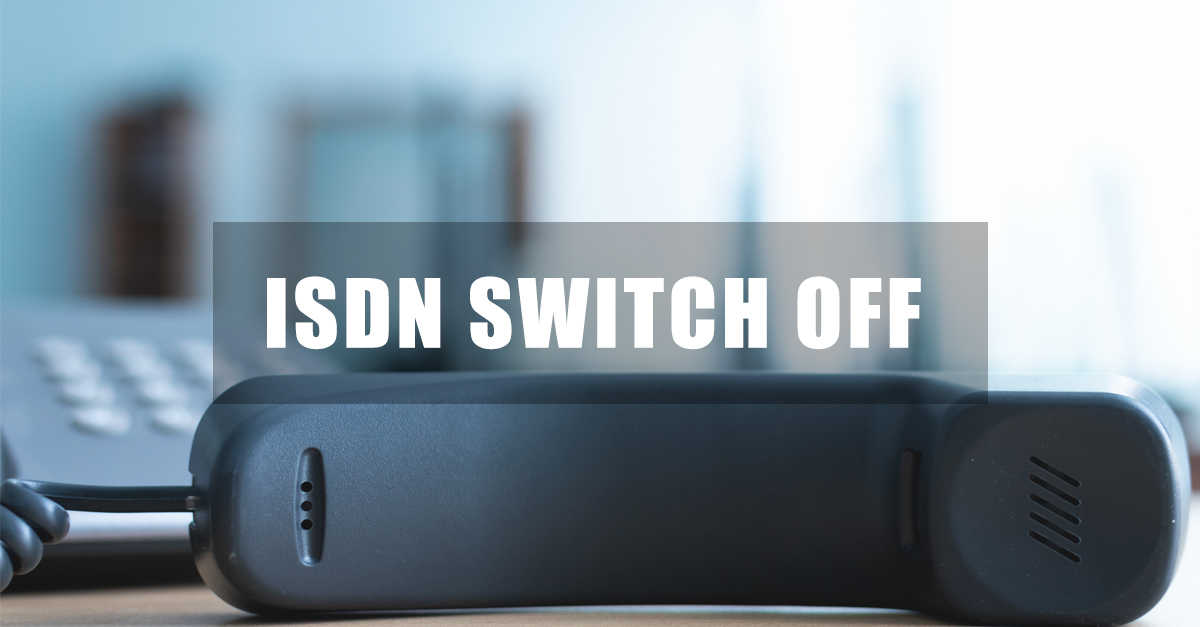In today’s digital landscape, businesses operating in regulated environments face the critical challenge of balancing technological advancements with stringent compliance requirements.
Compliance with industry standards such as ISO (9001, 14001, 27001 and more), GDPR (Data Protection Act 2018 in the UK), GxP, PCI and HIPPA is not just a legal obligation in some cases, but also essential for maintaining trust, data security, and operational excellence. Coupled with this, is the newer Cyber Essentials (and CE+) certification increasingly becoming a requirement in audits of supply chains.
As a leading technology consultancy with extensive experience in navigating regulatory landscapes for our clients across diverse industry sectors, we understand the significance of compliance and the need for robust technology implementation strategies.
In this blog post, we explore key compliance regulations and best practices associated with ISO standards, GDPR, HIPAA, GxP, PCI, and other relevant industry standards.
ISO Standards:
ISO (International Organisation for Standardisation) standards provide a framework for achieving consistent and reliable practices across various industries. Some notable ISO standards include:
- ISO 9001 Quality Management System (QMS): Focuses on implementing quality management systems to enhance customer satisfaction, continuous improvement, and operational efficiency.
- ISO 14001: ISO 4001 provides a framework for organisations to establish and maintain an effective Environmental Management System (EMS) for managing their environmental responsibilities and minimising their environmental impact.
- ISO 27001 Information Security Management System (ISMS): Addresses information security risks and provides a systematic approach to managing confidential and sensitive data.
Krome is both ISO 9001 and ISO 27001 accredited and we undergo annual compliance checks with an auditor to ensure that our systems and processes remain compliant.
GDPR (General Data Protection Regulation):
GDPR is a comprehensive data protection regulation that applies to businesses handling personal data of individuals residing in the European Union (EU) and also the UK (under the Data Protection Act). Key considerations for GDPR compliance include:
- Data Protection Impact Assessments (DPIA): Assessing and mitigating data protection risks associated with processing personal data. Depending on the size of an organisation or the type of data processing which occurs, there is an associated requirement for a company to appoint a Data Protection Officer (DPO).
- Consent and Data Subject Rights: Implementing mechanisms for obtaining and managing valid consent and ensuring individuals can exercise their rights over their personal data.
- Data Breach Notification: Establishing procedures to detect, investigate, and report data breaches in a timely manner.
GxP (Good Practices):
GxP represents a set of quality guidelines for industries such as pharmaceuticals, biotechnology, and healthcare. Common GxP regulations include:
- Good Manufacturing Practice (GMP): Ensuring products are consistently produced and controlled according to quality standards throughout the manufacturing process.
- Good Laboratory Practice (GLP): Establishing quality systems and controls for non-clinical laboratory studies, ensuring accuracy, reliability, and integrity of data.
- Good Clinical Practice (GCP): Providing ethical and scientific standards for designing, conducting, recording, and reporting clinical trials.
Krome build, support and operate a number of GxP-validated solutions for our clients, with experience working in both Manufacturing and Laboratory environments.
HIPAA (Health Insurance Portability and Accountability Act):
HIPAA is a US-based regulation that sets standards for protecting the privacy and security of patient’s health information similarly to the EU and UK GDPR. Key aspects of HIPAA compliance include:
- Administrative Safeguards: Implementing policies and procedures to manage security measures, employee training, and risk assessments.
- Physical Safeguards: Safeguarding physical access to electronic health records (EHR) and ensuring the physical security of technology infrastructure.
- Technical Safeguards: Implementing security measures such as access controls, encryption, and audit controls to protect electronic health information.
Private health providers from the UK or EU which operate in the US need to adhere to HIPAA as well as GDPR.
PCI DSS (Payment Card Industry Data Security Standard):
PCI DSS is a security standard for organisations handling payment card data. Key areas of focus for PCI compliance include:
- Network Security: Implementing robust network security measures to protect cardholder data, including firewalls, secure configurations, and encryption.
- Access Control: Restricting access to cardholder data on a need-to-know basis, implementing strong user authentication, and monitoring access privileges.
- Regular Monitoring and Testing: Conducting vulnerability scans, penetration testing, and security assessments to identify and address vulnerabilities in the system.
Krome build, host and operate PCI DSS certified environments on behalf of our clients, we also offer assistance with achieving PCI DSS compliance to many organisations.
Cyber Essentials and Cyber Essentials Plus Certification:
Cyber Essentials is a UK government-backed cybersecurity certification that helps organisations demonstrate their commitment to implementing essential cybersecurity controls and protecting against common cyber threats.
Cyber Essentials+ (CE+) is an enhanced certification that involves a more rigorous assessment and additional security testing to provide a higher level of assurance. CE+ requirements include:
- Implementing secure firewalls and gateways to control network traffic.
- Configuration of systems and devices securely, disabling unnecessary services.
- Management of user accounts and access privileges to limit unauthorised access.
- The effective use of anti-malware measures, including regular updates and scans.
- Application of security patches and updates regularly to address vulnerabilities.
- Established processes for detecting, responding to, and recovering from cyber incidents.
- Implementation of secure mechanisms for remote system access.
- Monitoring system logs, events, and user activities for potential security incidents.
- Enforcing strong password policies and regular password changes.
- Ensuring secure configuration and management of network devices.
- Allowing only approved applications to run, reducing the risk of malware execution.
- Applying security patches to all installed software, including third-party applications.
- Limiting administrative privileges to authorised personnel.
- Regularly backing up critical data and verifying backup integrity.
Typically, Cyber Essentials is self-certified which has led to either misunderstanding of the requirements or abuse in some circles, whereas Cyber Essentials+ requires an external audit. Noting also that this external audit has been more stringent in recent years leading to increased credibility for the CE+ certification but little for the standard CE.
Krome is Cyber Essentials+ certified, and we offer Cyber Essentials Assessment services to help our clients obtain their own Cyber Essentials+ certification.
Other Relevant Industry Standards:
Apart from the aforementioned regulations, several other industry-specific standards may apply, depending on the nature of the business. Some examples include:
- SOX (Sarbanes-Oxley Act): Ensures transparency and accountability in financial reporting and internal controls for publicly traded companies.
- FISMA (Federal Information Security Management Act): Establishes information security standards for federal government agencies, focusing on risk management and protection of sensitive information.
- FERPA (Family Educational Rights and Privacy Act): Protects the privacy of student education records and governs access to and disclosure of such records.
- American Physician Sunshine Payment Act: Evidences any financial relationships between healthcare professionals and pharmaceutical manufacturers, highlighting payments made for research, speaking fees or product promotion. Noting that many EU countries have either implemented a similar regulation or adopt the Sunshine Act in principal.
Implementing Technology Strategies for Compliance:
Some of the strategies that Krome uses to prepare for and then ensure ongoing compliance with these regulations on our client’s behalf’s include:
Conduct a Comprehensive Compliance Assessment:
We would normally start by conducting a discovery workshop to assess your organisation’s current compliance status, either as a precursor to you undertaking a formal assessment or to help you prepare for an upcoming recertification. We will work with you to identify gaps and areas that require improvement to align with the specific regulation or standard you are looking to certify for.
Create a Gap Analysis Report:
Based on the assessment findings, we will create a gap analysis report and a roadmap that outlines the necessary steps, milestones, and timelines for achieving compliance and will prioritise actions based on risk and criticality to ensure a systematic and phased approach to achieving compliance.
Assist with remediation where required:
Once the gap analysis has been completed, we can work with our internal teams to either provide supplemental resources to help close the gaps in whatever areas they exist, we will also provide project management where required to manage the gap resolution through to the point of certification. This can be as little or as much involvement as you and your team decide you require, some examples may be:
- Helping you to secure infrastructure and systems.
- Adopt processes for secure development.
- Implement strategies for data privacy and consent management.
- Establish incident response and data breach management policies.
- Providing initial and then ongoing training and awareness to your team.
- Creating an evidence locker (including individual policy creation where required) to ensure you have the necessary documentation and supporting evidence in place for the certification.
- Conducting the regular internal audits and board reporting to support recertification.
Certification:
Krome are experienced in providing assistance during the external audits; these can be a daunting task, but our experienced team can provide assistance and support as you go through the process, being on-site during the audit to support evidencing your position and providing the auditors with the proof of compliance.
Working inside a heavily regulated environment:
Finally, it goes without saying that once you achieve compliance, you must continue to work in a manner which adheres to the standards you are now compliant with and evidence this throughout in order to both maintain the intent of the compliance and achieve recertification when necessary.
Krome’s Managed Services and Professional Services teams along with their helpdesk are well versed in working inside environments with a strict compliance regime, such as PCI or GxP-certified environments for our existing customers and can help you to navigate the compliance landscape with confidence.
In regulated environments, compliance with industry standards and regulations is crucial for maintaining trust, data security, and operational excellence.
By implementing effective technology strategies aligned with ISO standards, GDPR, HIPAA, GxP, PCI, and other relevant industry standards, businesses can navigate the compliance landscape with confidence.
As a technology consultancy experienced in compliance matters, we emphasise the significance of robust technology implementation, ongoing monitoring, and continuous improvement to achieve and maintain compliance in today’s evolving regulatory environment. If you need any assistance, or advice on any compliance-related matters, please do not hesitate to contact us
Want to know more?
Contact us today to explore how our tailored solutions can align with your business priorities.
Join our Krome community



